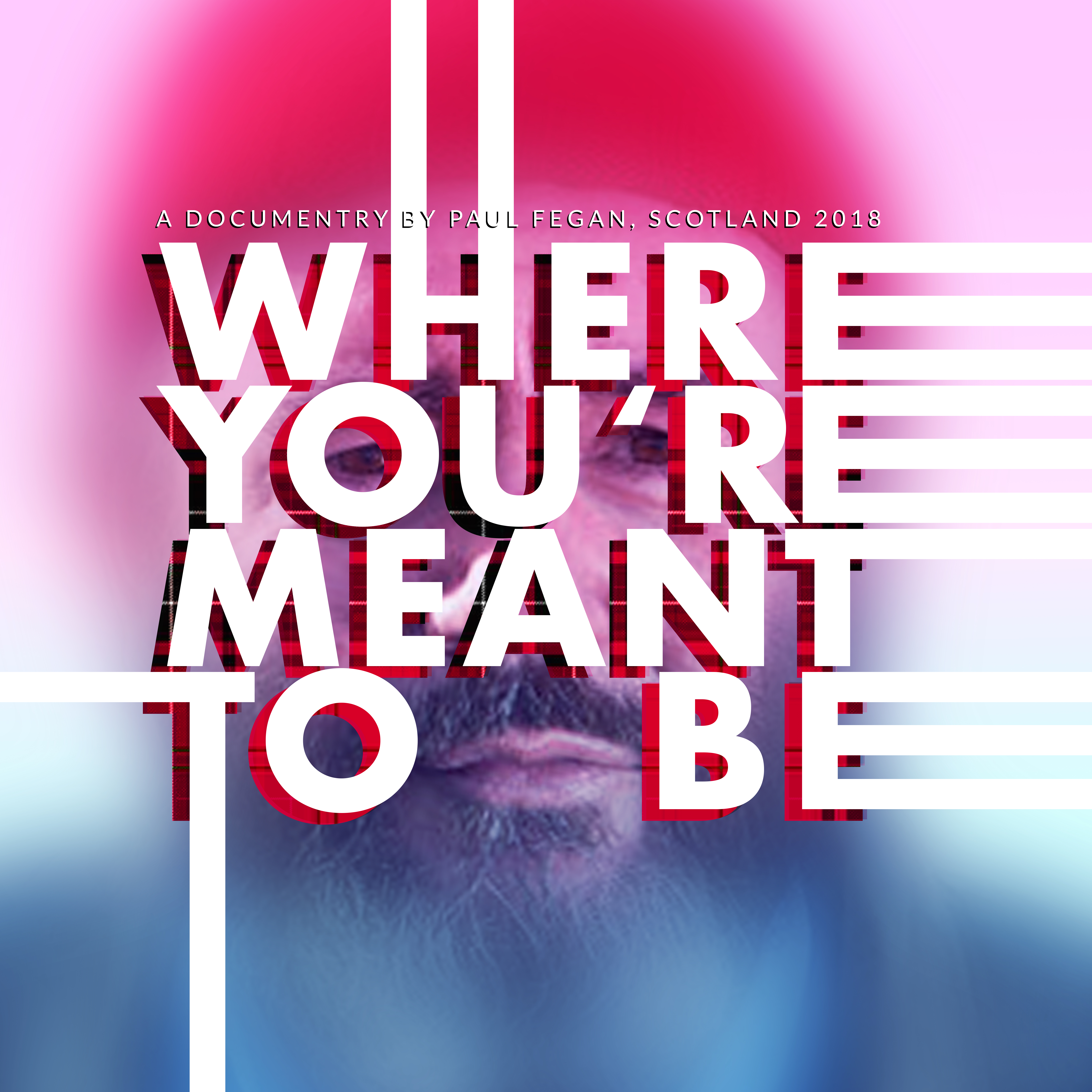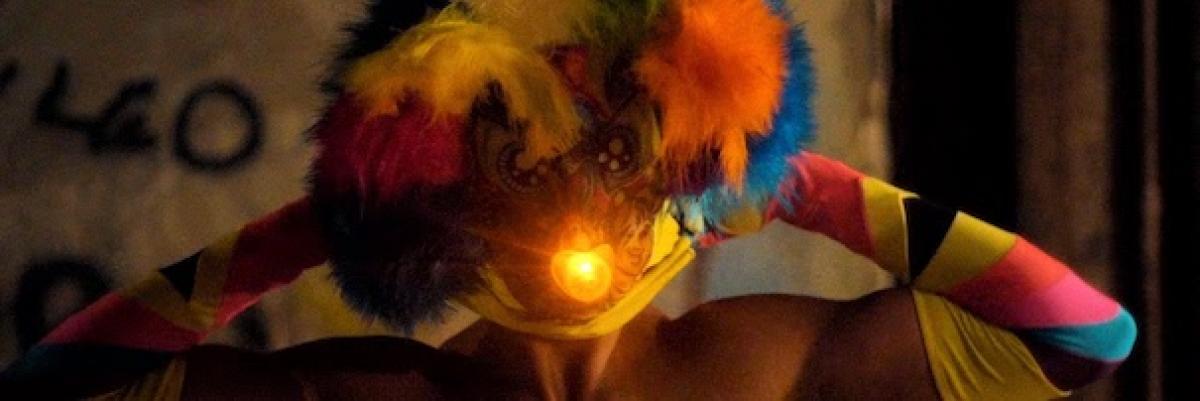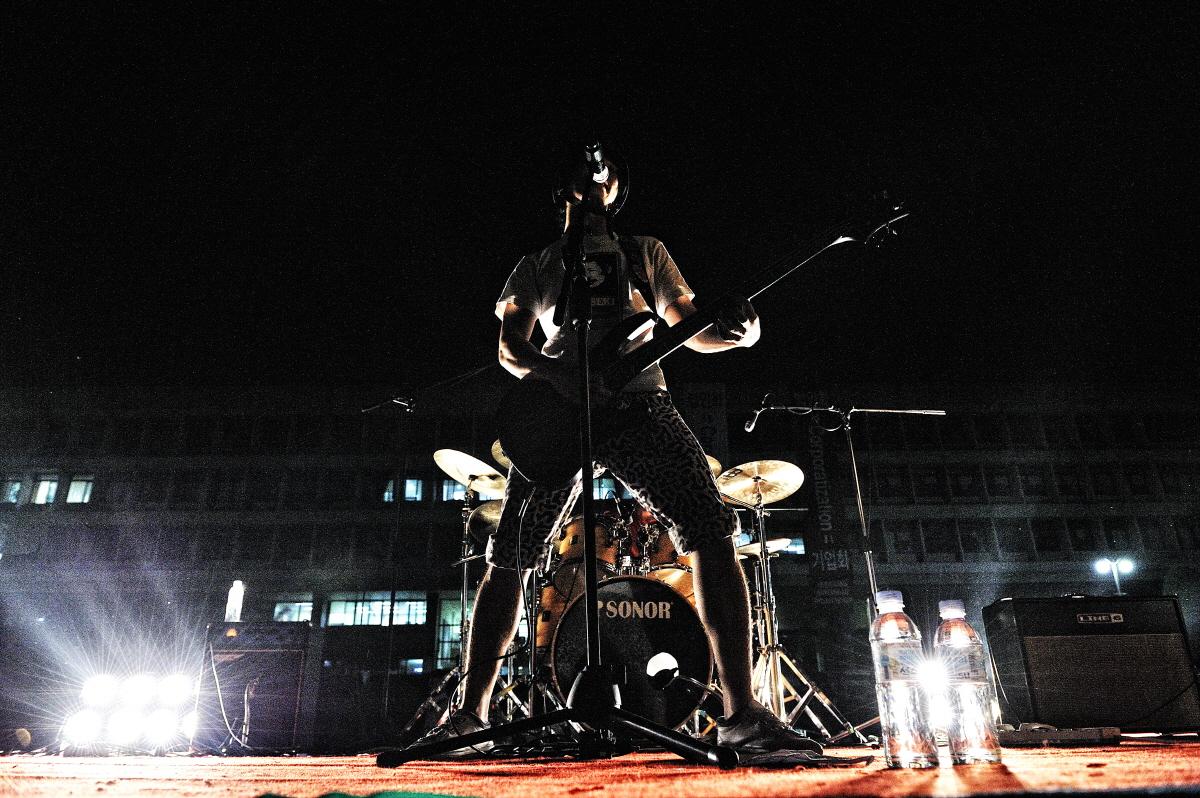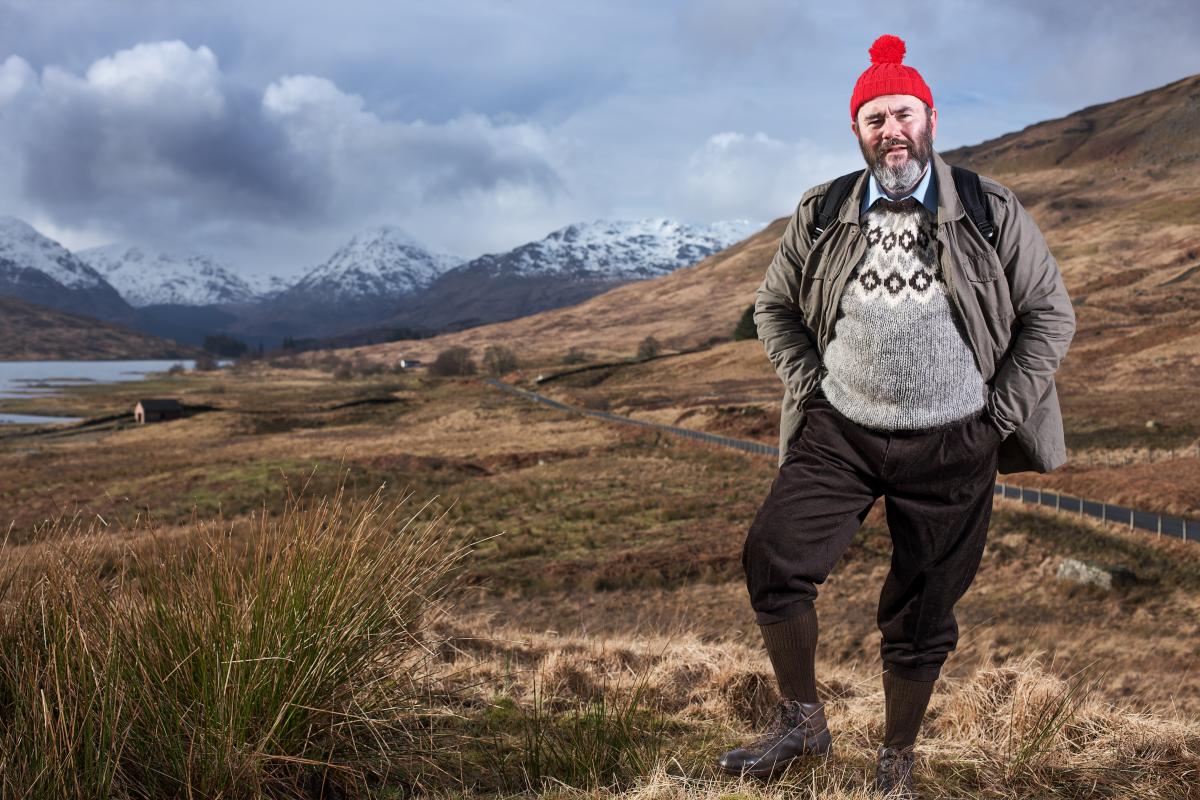
Where Swearing Is Polite
Rude, tender and weird. The film Where You’re Meant to Be of the director Paul Fegan tells a sensitive story about the idiosyncracities of Scotland and its people through the lens of the Folk musician Aidan Moffat. This works well, as Moffat is as eccentric as the people he meets.
Pissing Off the Old Generation
Where You’re Meant to Be is a very Scottish film. Not the Scotland of the past, of tartan, shortbread and kilts (although the latter does appear), but the recent, the real Scotland. And what better way to do that than Aidan Moffat does in this film – tour the country singing traditional, rural, songs rewritten for a modern, urban generation – while sometimes pissing off the older generation in the process.
The tour goes to the backroads of the country. Aidan Moffat, who is the narrator of the film, is just one of the main performers, besides the country itself and especially the eccentric people: There is the man who locks his dog in a phone box. A kilted man dancing drunkenly at a gig in an old graveyard which is now someone’s garden. The grief stricken widower, bereft after loosing the woman who had been «the wind in my sails» for 58 years. And the two Loch Ness monster hunters who have fallen out and are reconciled during the film. While the documentary is too often male led, this is a Scotland of warmth and tenderness.
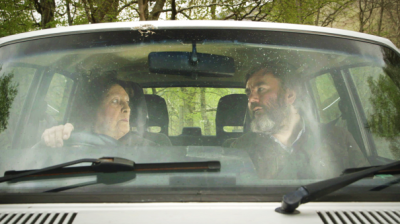
Allowing Old Songs to Evolve
The film’s tone is ever respectful, never patronising, but often also very rude. Moffat has never avoided swearing and profanities litter most of the songs here. Of course, for this is how a large swathe of the Scottish population speaks. To deny the swearing would be to deny these people a voice, something which this democratic film would not allow.
There could be no better place to end the film than at Glasgow’s Barrowland Ballroom. Located in Moffat’s adopted home, the «Barras» might be still the best venue in the world. Here Moffat is amongst his own, only to be upstaged by Sheila Stewart, a traditional singer who died between the making of the film and its release. In a film where Scotland’s ethnic minorities do not appear enough, it is significant that Stewart is from a traveller background, her partial outside status echoing Moffat’s endorsement of society’s outcasts. She finds Moffat’s version of the songs «disgusting», but is slowly won over to the idea that the songs can evolve.
At the end she mounts a one woman stage invasion following the end of Moffat’s version of the traditional song «The Parting Song». A song, which is very dear to her and creates a magical, unscripted moment. Stewart, the old stager, performs her version of the song and the new generation assembled in the Barras acclaims her. Here, Scotlands past and present meet and are reconciled.
Biography
Published on December 14, 2018
Last updated on May 01, 2024
Topics
Snap
